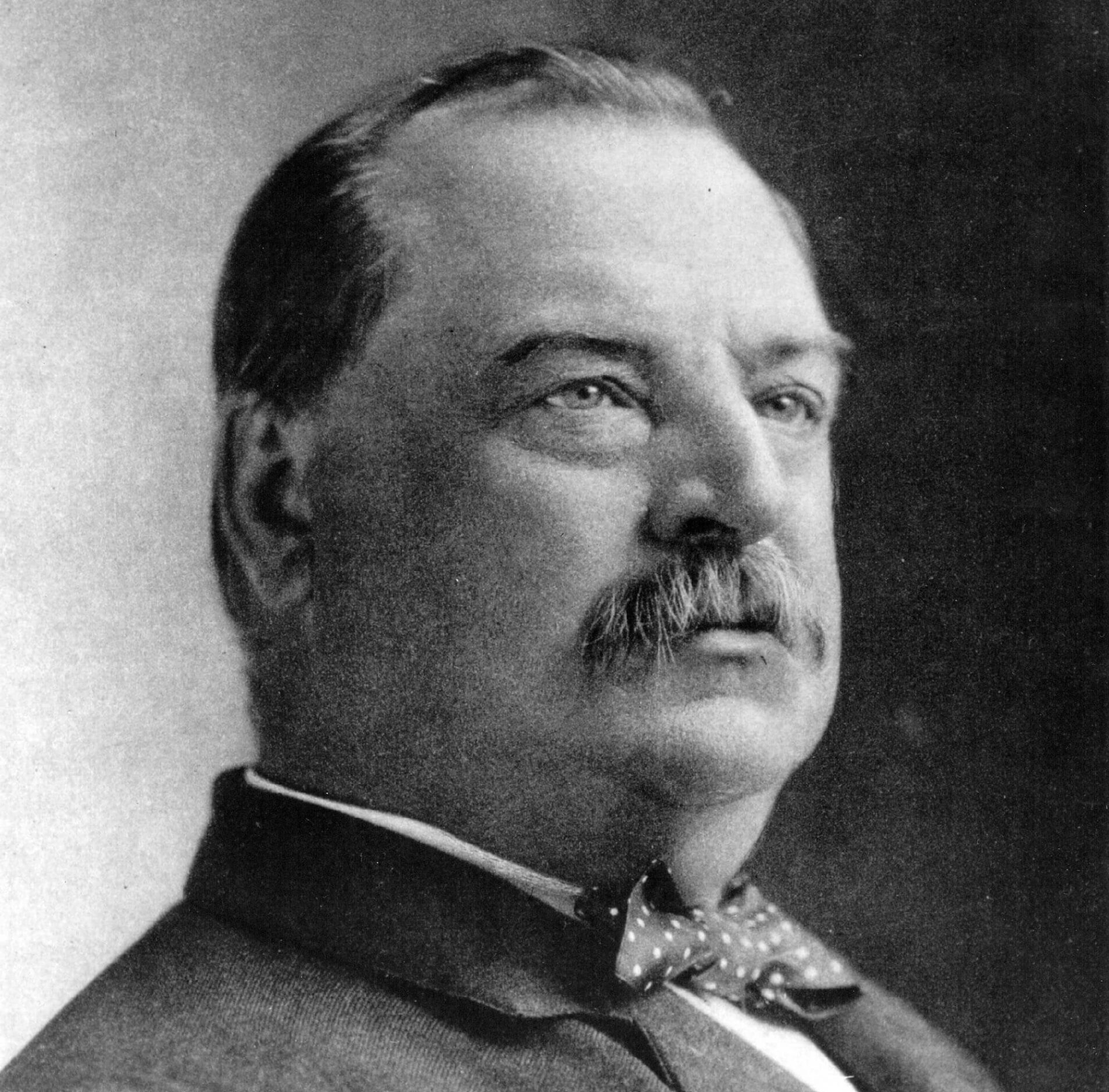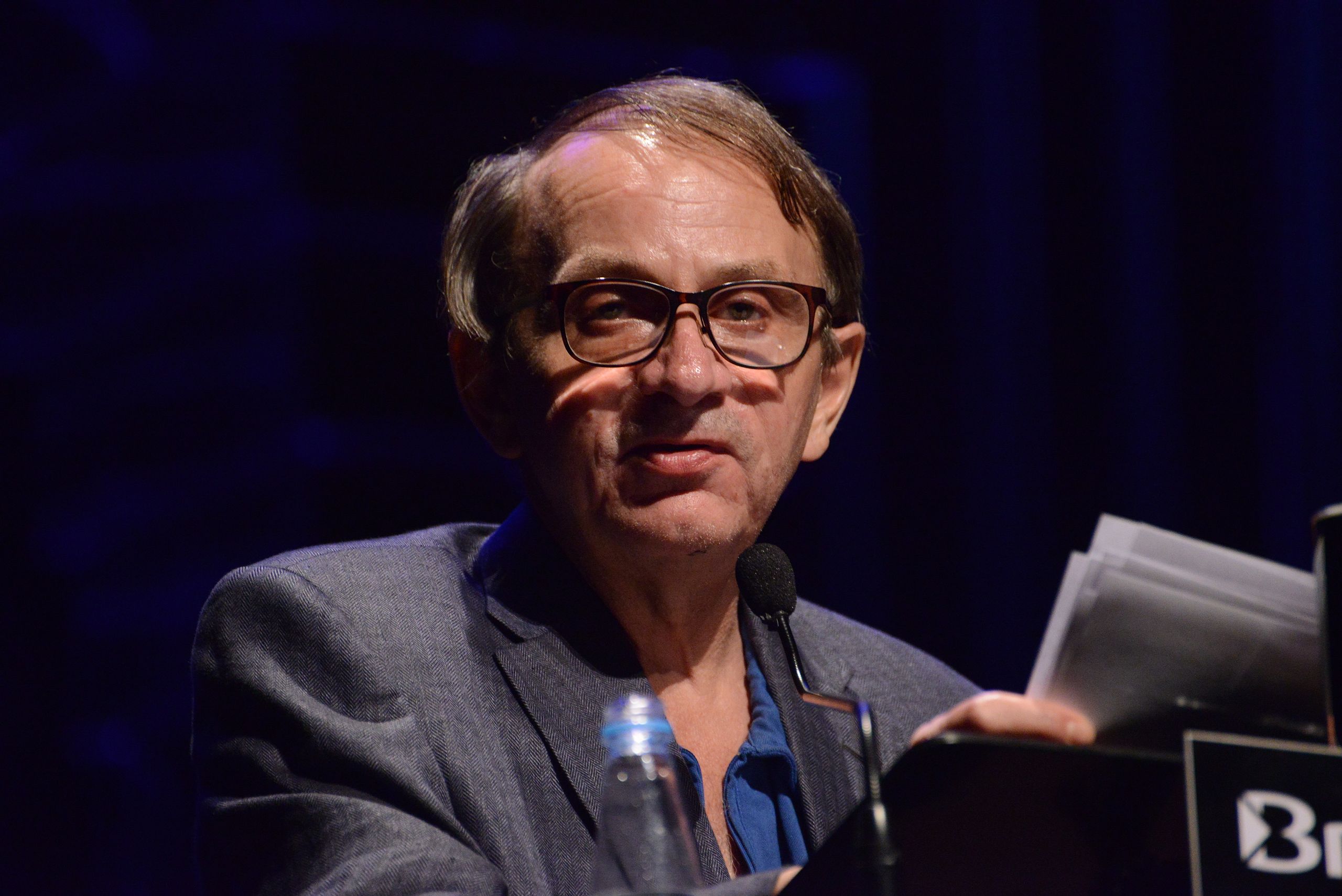It was exciting to speak in Rome, where I read the original version of this paper in a tiny theatre a stone’s throw from the column of the Antonines. Exciting but also sobering. In Rome, more than any other city in the world, one feels the weight of history. Crushing and exhilarating, history stands manifest at every streetcorner. Man can, I think, be most aptly described as an institution-building animal. At least during the few thousand years that we know anything very definite about his activities the building of institutions seems to have been his chief concern. Rome has been the pivot and hub of some of the most awesome and majestic institutions men have ever constructed. The very name connotes empire.
These connotations are particularly sobering to an American. We Americans were brought up to believe that history didn’t exist. For a number of generations we thought the Declaration of Independence had repealed history. During the last fifty years the American people have gone through a painful and costly education in the realities of history. As a nation perhaps we haven’t made as much progress as we might have in our education, but as individuals, here and there, a few of us may be learning.
One of the teachings of history is that whole nations and tribes of men can be crushed under the imperial weight of institutions of their own devising. History further teaches that, through all sorts of terrors and despotisms, a divine something in the human spirit has managed to keep alive and to leaven and permeate the institutions that channel men’s destinies.
The working of that divine leaven is what I mean by civilization. Civilization in the abstract remains one of man’s eternal aims; but civilizations, in the concrete, are subject to growth and decay, like living organisms. We are here today, I said, to exchange ideas about what can be done to defend our own peculiar type of Western Christian civilization against its own decay, and against the inroads of brutal and arbitrary institutions that grew out of the national and ideological wars that have devastated the century we live in.
It would seem a staggering assignment if it weren’t one of the laws of human behavior, well expressed in Toynbee’s useful catchword, that it takes challenge to provoke response.
It is my belief that at last Western civilization is beginning to show response to the challenge of the monolithic Communist state that allows no liberties at all and of its corollary, the bureaucratic socialist state, where a few loopholes of freedom still survive. We can call one type the illfare state and the other the welfare state. Young people throughout the Western world and even under the Communist regimes are beginning to question the socialist slogans. Our problem today is to ask what can a few scattered men of letters do to cherish and stimulate that response.
Before we go any further I think we need to examine our own capabilities somewhat searchingly. How well are we equipped to cope with this titanic assignment?
Somewhere in the middle twenties a Frenchman named Julien Benda wrote a book called La Trahison des Clercs that made a great impression on me. As I look back on it, it was a somewhat superficial work, but its title summed up for me my disillusion with most of the men of letters I had considered great figures in my youth. This was during the period of the war of 1914–18. I was studying at Harvard up to the spring of 1916 and followed with growing astonishment the process by which the professors, most of them rational New Englanders brought up in the broadminded pragmatism of William James or in the lyric idealism of Ralph Waldo Emerson, allowed their mental processes to be so transformed by their conviction of the rightness of the Allied cause and the wickedness of the German enemy, that many of them remained narrow bigots for the rest of their lives. In joining in the wardance the American intellectuals were merely following in the footsteps of their European colleagues. Their almost joyful throwing off of the trammels of reason and ethics is now generally admitted to have been a real transgression against the cause of civilization. I can still remember the sense of relief I felt in taking refuge from the obsessions of the propagandists of hate, in the realities of war as it really was. The feeling was almost universal among the men of my generation who saw service in the field.
Benda analyzed this state of mind with pain and amazement. For two thousand years he saw the people we now tend to describe as intellectuals, whom he described as les clercs, as having been on the side of reason and truth. As he put it, although helpless to keep the rest of mankind from making history hideous with hatreds and massacres, they did manage to keep men from making a religion of evil. “L’humanité faissit le mal mais honorait le bien.” Surveying the racial hatreds, the national hatreds, the class hatreds that rose from the wreck of civilization in that most crucial of the worldwide wars, he concluded, “On peut dire que l’Europe moderne fait le mal et honore le mal.”
Western civilization is only just now beginning to recover from the carnival of unreason that went along with the military massacres of the First World War. The hideously implemented creeds of the Marxists and the Nazis and the Fascists of various hues were rooted in this denial of humane and Christian values. The task before us is somehow to restore these values to primacy in men’s minds and hearts.
It has been my experience through a pretty long life that the plain men and women who do the work of the world and cope with the realities of life respond almost automatically to these values. It is largely when you reach a certain intellectual sophistication that you find minds that have lost the ability to distinguish between right and wrong.
To be of use in the world the man of letters has to be continually on his guard against the professional deformations of his calling. The man who lives behind a desk or on the lecture platform has to seek daily confrontations with reality to keep his mind clear of the delusions and obsessions of the current verbiage.
In other words, he has to find every day some new way of telling the truth.
Language from its very beginnings has served two purposes: one purpose is to deceive and the other is to convey truth. One has to reach a fairly ripe age before one comes to a full understanding of how hard this is to do. Lies come easier.
The truth is hard to come by and when you do manage, by hook or crook, to come up with some fragment of it you are likely to find it as dangerous as strontium 90.
Socrates liked to call the search for truth “the examined life,” and we all know what happened to Socrates. Perhaps we can take some comfort from the fact that the Athenians let Socrates live till he was seventy years old before they handed him the hemlock.
Ever since man began, the pursuit of truth has been an activity beset by many occupational hazards. The institutions through which, in almost any society, the bosstype men impose their will on the workers and the producers and the builders are invariably founded on lies. Even a tiny fragment of truth tends to produce an infringement of public order. The automatic reaction of the bossmen who hold the police power is to stamp it out. The tremor runs through the whole hierarchy of timeservers and lickspittles whose lives and careers depend upon the bossmen. In any human society that you care to study you’ll find that the bossmen’s hangers-on have equipped themselves with the most delicate sensibilities to enable them to feel the pain in their own corns when somebody steps on the bossman’s foot. Truth is by its very nature painful to authority.
History is full of examples of the dangers of truth telling, but it was not until we reached the epoch of mass education and mass communication that we came to the full understanding of the difficulty of discovering the truth in order to tell it. Your uneducated and illiterate man in the old days would hardly have been likely, if you showed him a pig, to have called it a goat. Today, with our minds continually indoctrinated with whatever fallacies the authorities in charge of radio and television feel it to their interest to promulgate, you can’t be too sure. Your college-educated intellectual is likely to explain to you that it may be on account of your own psychological disabilities that the creature in the pen looks to you like a pig. He won’t go so far—everything is relative you know—as to claim that the creature is a goat; but he may well point out that treatises have been written to the effect that epistemologically speaking, the creature may be described as having goatlike characteristics.
The man of letters finds it particularly hard—as the old saying went—to tell the truth and shame the devil, because he is, by the nature of his calling, an intellectual. The intellectual’s mind deals in concepts rather than in things. That’s what they teach you to do in college. Of course abstract concepts are useful in the processes of thought, just as poker chips are useful when you play poker, but you have to remember that it is what they represent that counts. In the painful search for the words needed truthfully to describe an event, every word has to represent some real thing. In spite of his larger vocabulary the intellectual is sometimes more at a loss when it comes to that than the ignorant wayfaring man.
The intellectual is always taking the poker chips for real money. This flaw in his way of thinking, usually combined with an arrogant disinterest in the thought processes of the average man, shuts him into a conceptual universe divorced from life as it is really lived.
Truth is always a discovery. The discoverers are people who see the thing before they name it. For the intellectuals everything is already named.
Truth is always a discovery. The discoverers are people who see the thing before they name it. For the intellectuals everything is already named.
In modern bureaucratic societies intellectuals are becoming a dominant class through their furnishing the bossmen with the slogans and delusions by which they control the general public. The twentieth century may possibly end by being known as the century of the intellectual. As they become giddy with power the usefulness of the intellectuals as a class to the cause of civilization becomes more and more doubtful.
I have been a good deal in South America during the last few years. There, as I suppose in most Latin countries, you find a much greater cleavage between the man who does the work and the man who sits behind the desk than you would find in English-speaking America, in Canada or the United States. The educated and the uneducated live in different worlds. The universities are full of half-educated young men who out of sheer ignorance of plain workaday human behavior snap up all the slogans fed to them by Marxist agitators. Since little in their schooling fits them for engineering or dentistry or veterinary work, and they have been taught to scorn buying and selling over the counter, and would rather die than work with their hands, they have no career open to them except politics. The Communist party offers to these young men who have no intention of soiling their hands a magnificent prospect of bossing their fellows and attaining, through revolution, the use of the automobiles, airplanes, hotels, and restaurants that in their countries are reserved for the very wealthy. The success of the Communists in those countries stems from their appeal to the disoriented intellectual.
Of course their careerism is veiled in idealistic verbiage. Benda’s Trahison des Clercs in modern form. It’s all for the good of the workers and peasants. This is the basis of what you might call the Fidel Castro mentality.
In our own universities you find a parallel mentality, except that outside of a few indoctrinated Marxists, the aims are less drastic. Young men who dread the risks of the competitive world of business look forward to more placid careers “in government,” as it is called.
Willy nilly the world over the man of letters belongs to the class that staffs the bureaucracies. Before he can perform his duty to tell the truth about the society he lives in he must clear his mind of the ideological trappings which are part of the equipment for worldly success of the class to which he belongs. In his renunciation of the commonplace taken for granted by his class he will find himself faced with the question that comes resounding through the centuries: Pilate’s anguished question: What is the truth?
It is a question to which humanity has found many answers. It has been involved in all the casuistries and sophistications and the proliferations of verbiage the human mind is capable of. I believe it can be best answered in the form of a creed. I believe that there are certain simple realities which are universal to all men, no matter how diverse their backgrounds or their environments or their social customs. The man who humbly seeks out these realities is on the firm path which will lead him to the truthful observation of the world about him. When I think of the search for truth my mind turns to the painstaking investigations of the early naturalists, to the attitude of mind reflected in Charles Darwin’s Voyage of the Beagle or Harvey’s Circulation of the Blood.
Man’s great achievements come when he examines reality without preconceived ideas. The man of letters who will be useful to humanity in our day will examine the social conflicts with the cool and eager eye of young Darwin examining a cuttlefish or an insect. Lies and delusions are an inevitable part of the human mentality so that truth can never entirely prevail, but a tiny flash of truth is seen a long way. Small illuminations have farreaching consequences.
When I say that the man of letters must avoid preconceptions I do not mean that he must be without standards. The human mind can no more function without the conviction of right and wrong than a mammal can exist without a skeleton. Without firm belief that good is good and evil is evil where can we find the inner fortitude needed to explain to the masses of men, whose minds have been befogged by endless selfserving propaganda, what we mean by civilization?
The terms we have to use have been so mutilated in the mouths of politicians that one can hardly pronounce grand old words like liberty and democracy without an apologetic blush. The ideas behind these terms have lost all urgency for the populations that benefit most from them. It sometimes seems as if the only people who had any understanding of civil liberty were the people in the Communist states who are deprived of it.
In fact the best description I have seen in some time of the sort of thing we want to defend came from an escaped Russian sailor. It is the man who jumped overboard from a Soviet freighter anchored in the bay off Calcutta. He swam to another ship and finally made his way to the shore. The Russian authorities tried to snatch him back by claiming he’d stolen some money, but the Indian law court wouldn’t give him up, and he finally made his way to the United States. On being asked why he risked his life to escape to the free world, he answered that, first, he was tired of being ordered around by stupid people who knew nothing about navigating a ship and, next, that he thought people, in America at least, really were equal before the law, and that there “each person is able to build his own life without directive from above, and that each citizen through his own development brings good to society.”
For me at least the story of that Russian sailor makes the problem concrete. The question before us is what can we do to preserve and improve the sort of society all these refugees from the Communist slavecamps hope for when they risk their lives to escape to freedom.
I do not believe that the values the conservatives want to conserve can be furthered by a static resistance to change. The problem is to find ways of adapting the institutions of modern industrial society so that they will serve the purposes of civilization. That this sort of adaptation is no philosopher’s dream is proved by the success of United Europe. Those nearest to it probably see more defects in the foundations than we do from the other side of the Atlantic but the fact remains that in a short fifteen years extraordinary progress has been made in uniting the peoples of Europe whose wars first put our civilization in deadly jeopardy.
Turning for a moment to my own country the tasks which I would urge on the conservatives are equally arduous, but success would be equally rewarding. At home in the United States the same sort of shrewd and patient work which produced the framework of a new Europe is needed to resolve two great mass conflicts. Methods must be found to keep the agitation for Negro rights from degenerating into racial warfare. That is a very special situation that demands tact, forbearance and social inventiveness on both sides instead of the fanning up of hatreds by politicians and professional troublemakers.
The other mass conflict we don’t hear so much about. The rise to power of empire-builders among the labor unions has brought about a sort of schizophrenia in American industry. Management and labor have become two warring camps, with government, in the hands of vote-happy politicians, usually on the side of the labor leaders. While the financial gains of the workers have been so immense as to throw large sectors of the economy off balance, very little has been done to carry out the original aims of the old nineteenth century labor movement. The original impulse came from the need factory workers felt to assert their human dignity. In modern industry the wageworker is starved for a feeling of participation in work well done. As the situation stands today the worker in the mass production industries can have no feeling of participation in the productive enterprise that affords him his livelihood and very little in the labor union that takes such a large slice of his pay. Although useful solutions have been tried out and some with great success our politicians can only see in the labor unions a means for delivering regimented blocks of votes at the polls. The social engineer who talks directly to both the man at the bench and to the man at the desk and manages to bring about a rational integration of management and labor in harmonious cooperation will have deserved well of his country.
One of the tasks of the conservatives as their influence grows will be to suggest reasonable solutions for social problems. Ideas don’t depend on victory at the polls. Politicians are notorious for snatching at ideas proposed by the opposition. Practical measures that tend to humanize industrial society are in my opinion more important than neat ideological statements or victories at the polls. The trend towards a totalitarian society can only be stemmed little by little by practical measures that change the alignment of institutions. There is no way of saving civilization by a formula like the Communist Manifesto, which has done so much to destroy it. The great political slogans of the past have tended to come out of the application of general ideas to specific situations, so now the vocabulary of a new conservatism will come into being gradually out of the workaday struggle to remedy specific abuses.
One of the weaknesses of conservative theorists has been that their diagnoses of social and political trends have been so pat and plausible that they have tended to stick to them too long. Some of the diagnoses applied marvelously five years ago, but they don’t apply today. Even under the rigid shell of Communist dogma changes have occurred. Many free world positions have been so badly defended that for the time being at least they have become indefensible. It is time to look at social and political phenomena with a fresh eye. Only after the naturalist’s calm and dispassionate evaluation will it be possible to use your humane standards as a measuring stick and to decide which trends you want to back and which you want to discourage or oppose.
The field is certainly open to fresh ideas. In spite of their successes against the loose-lipped liberals of the free world the Communists are still struggling in the straitjacket of Marxist dogma. Among the crowd of little Stalins and ersatz fuehrers and spurious duces that have climbed to power out of the debris of the European colonial system, the socialist ideology has become a cloak for the most aboriginal forms of personal dictatorship.
In Western Europe there have certainly been developments, some hopeful and some discouraging. At least there the effort to apply brains to the situation has had tangible results. In the English-speaking countries, after some brilliant early successes for the cause of civilization, such as the generous treatment of Germany and Japan and the aid the Marshall plan gave to the rebuilding of Europe, we have had very little to offer. The chief strategy of our leaders in the ideological war has been a refusal to face facts, and a strange inability, once the facts were admitted, to take the action the facts demanded. The world is waiting for a renovation of its political and social theories.
The conservatives must come up with invigorating new ideas. The other ideologies have come to a dead stop. It’s a time of stalemate in a number of directions. A sort of calm has descended on the world. The peoples under Marxist rule seem to have run out of enthusiasm for ideological warfare. One is reminded of the sudden calm that descended on Europe when the wars of religion began to peter out. Perhaps fresh voices can make themselves heard. They must speak up fast because the calm can’t last very long.
On the whole it is an interesting time to be alive. Five years ago the triumph of Communist dictatorship seemed almost certain. Now, in spite of the threat of nuclear extermination and the equally fearsome prospects consequent on the population explosion, it looks as if civilization might still have a fighting chance. It makes me wish I were a great deal younger.
John Dos Passos was an American novelist and journalist.















